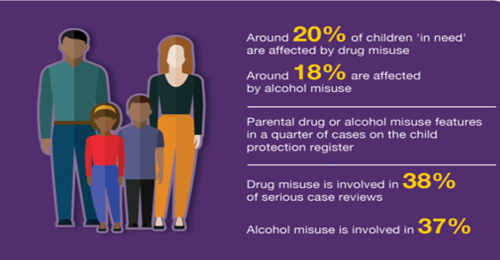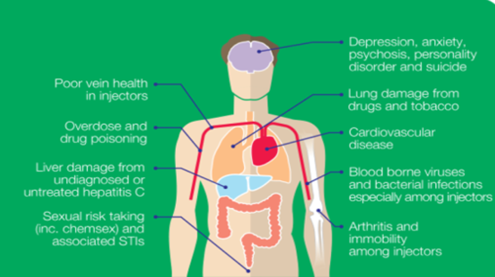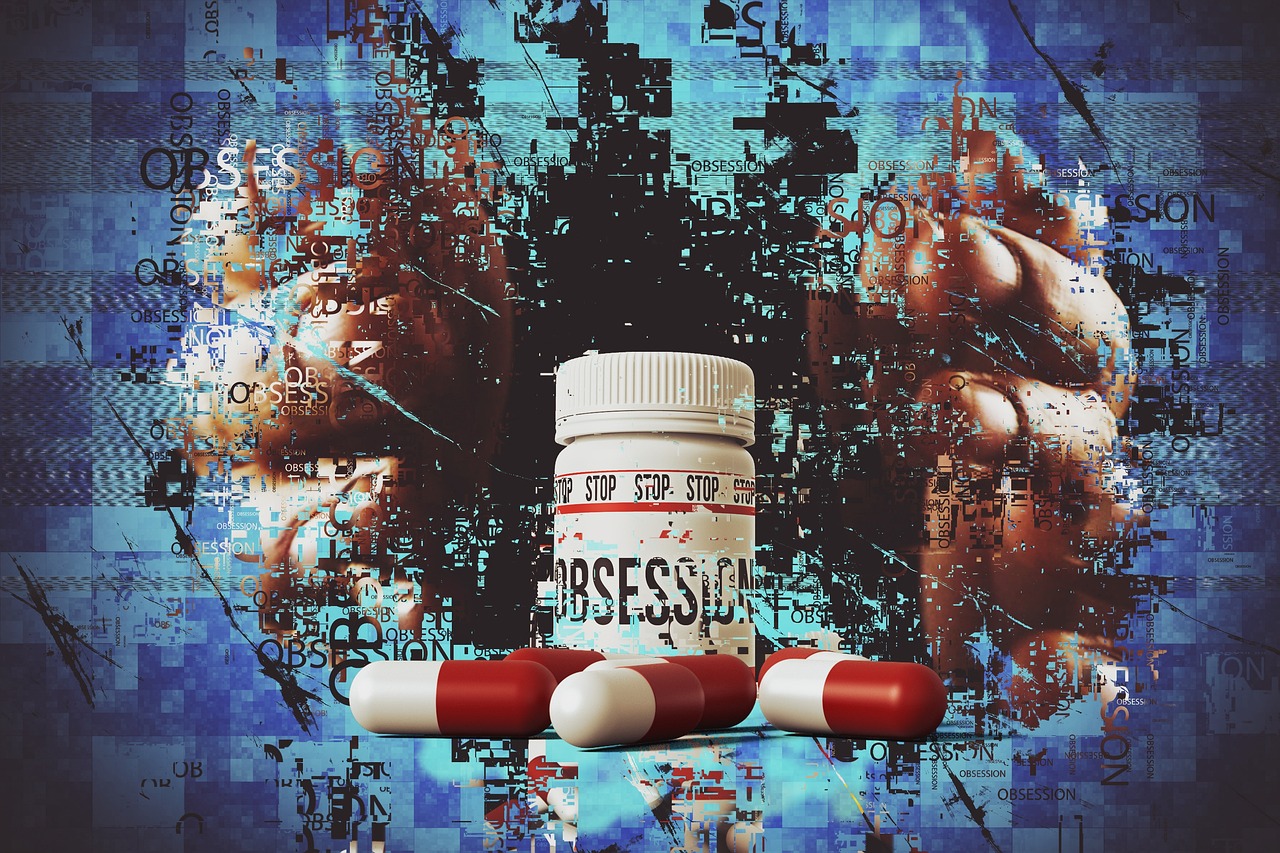Misuse of drugs is a significant issue in Scotland and it leads to a variety of social and health problems.
In November 2018 the Scottish Government published “Rights, Respect and Recovery”, a new, combined drug and alcohol strategy that takes a public health approach to preventing and reducing alcohol and drug use, harm and related deaths.
The vision for the strategy states that in Scotland “we live long, healthy and active lives regardless of where we come from.” Scotland is a country where individuals, families and communities
- have the right to health and life free from the harms of alcohol and drugs
- are treated with dignity and respect
- fully supported within communities to find their own type of recovery.
Delivering this will involve
- a focus on prevention to reduce the likelihood of alcohol and drug use and related harm
- actions to tackle health inequalities
- a continuing whole-population approach to changing Scotland’s relationship with alcohol
- a human rights based, person-centred response, ensuring a focus on those who are most at risk
- a focus on taking an improved public health approach in justice settings – reducing use and harm and taking vulnerable people out of the justice system
- an evidence informed approach
Ask
Questions to guide conversation
- Do you mind if I ask you a question about drug use?
- This question may be promoted from some verbal or visual prompts i.e. the person has stated that they have a hangover or there is evidence of consumption of drugs in the home etc
- How often do you have illicit drug?

The National Institute for Health and Care Excellence (NICE) recommends that health and social care professionals routinely assess whether people in groups at risk are vulnerable to drug misuse - assessment.
3. You can use the Alcohol, Smoking and Substance Involvement Screening Tool - Lite - to identify alcohol, drug and tobacco smoking - related risk to deliver appropriate interventions to help the service user reduce these risks
- Asking about drug use can occasionally provoke a hostile response and in these circumstances it is probably better to move the conversation on and not pursue the issue
- The best way to get an honest answer is to ask a simple, straightforward question. How best to ask the question will ultimately depend on your role and relationship with the patient, the setting in which the conversation is taking place, or in the patient's symptoms.
Assist
Drug use can cause a range of health-related problems, including: -
- mental health problems such as anxiety, depression, psychosis, personality disorder and suicide
- lung damage
- cardiovascular disease
- blood-borne viruses
- arthritis and immobility among injectors
- poor vein health in injectors
- liver damage from undiagnosed and untreated hepatitis C virus (HCV)
- sexual risk taking and associated sexually transmitted infections (STIs)
- overdose and drug poisoning
- Because of this, people experiencing drug-related harms might seek help from a wide range of health and care professionals, including acute medical, primary care and psychiatric services.
- Drug use might not be the main problem that a person is seeking help for, or even immediately obvious as a potential contributing factor to their ill health.

Act
National Support
Guidance on using the ASSIST-Lite - includes an overview of how to deliver brief advice on drugs using the FRAMES approach. Brief advice is typically a short, informal but structured conversation supported within information such as leaflets. Suitable sources of information include:
the cannabis health check-up tool, which can help you to structure cannabis brief advice
the FRANK website and helpline, which offer information and confidential advice about drugs and drug use and where to find help locally
the NHS drug addiction: getting help website, which provides useful material on what drug treatment involves and what to expect from your first appointment
Mutual aid services such as Narcotics Anonymous, Cocaine Anonymous and Self-management and recovery training (SMART) can also offer support to people who want to address their drug use. Even when someone is in a drug treatment programme, mutual aid can help them connect with a community of people in recovery.
UKNA
Cocaine Anonymous
Smart Recovery
Advice on reducing or stopping a patient's drug use
In some circumstances it may be appropriate to advise a patient to reduce, stop or minimise the harm from their drug use.
The nature of this advice will depend on: -
- your level of knowledge about the drugs used
- the risks associated with stopping use
- the extent and frequency of your patient's drug use
- the impact of drug use on the presenting condition
Clinical guidelines do not recommend advising a patient to stop using drugs altogether if there are concerns that they are highly dependent. In these circumstances, you should seek specialist advice from a drug service.
